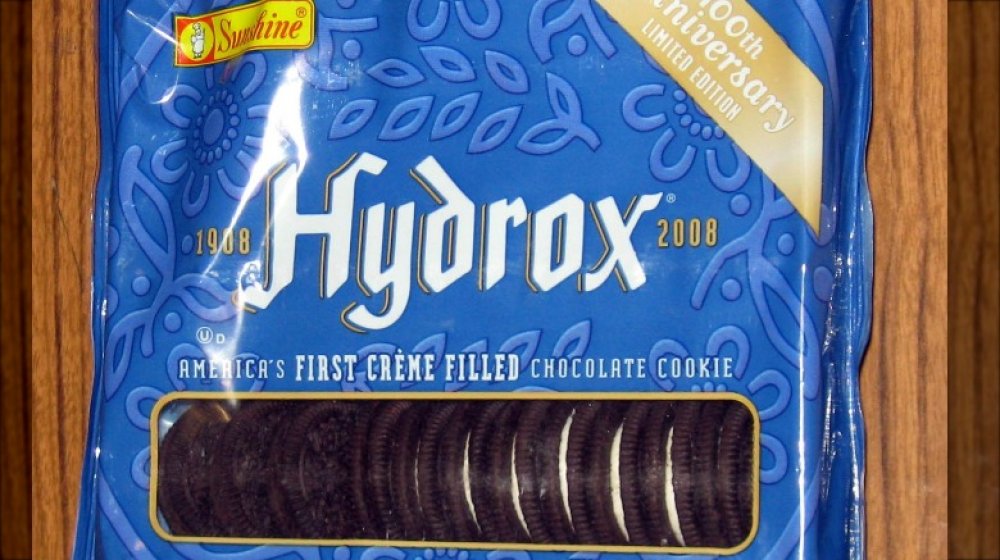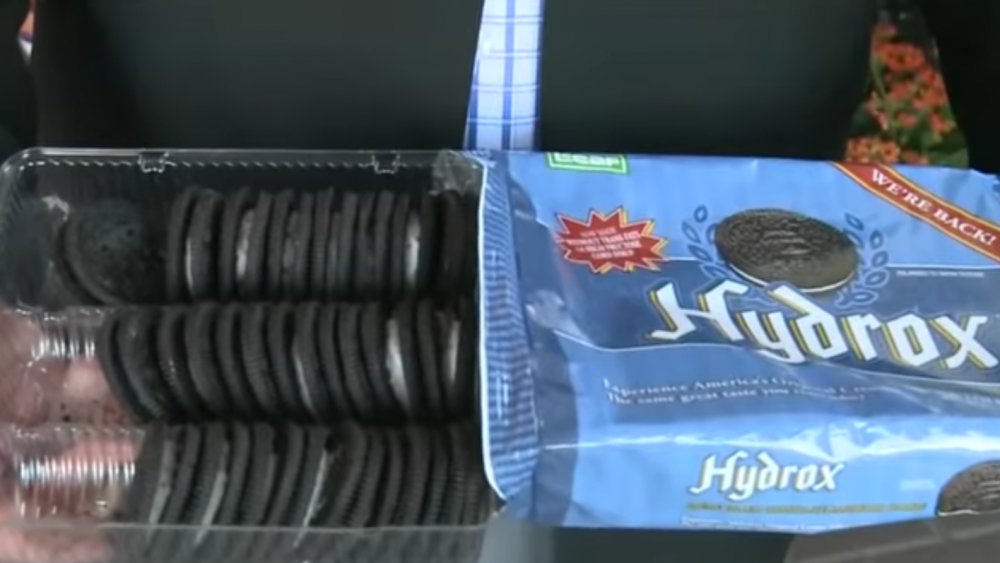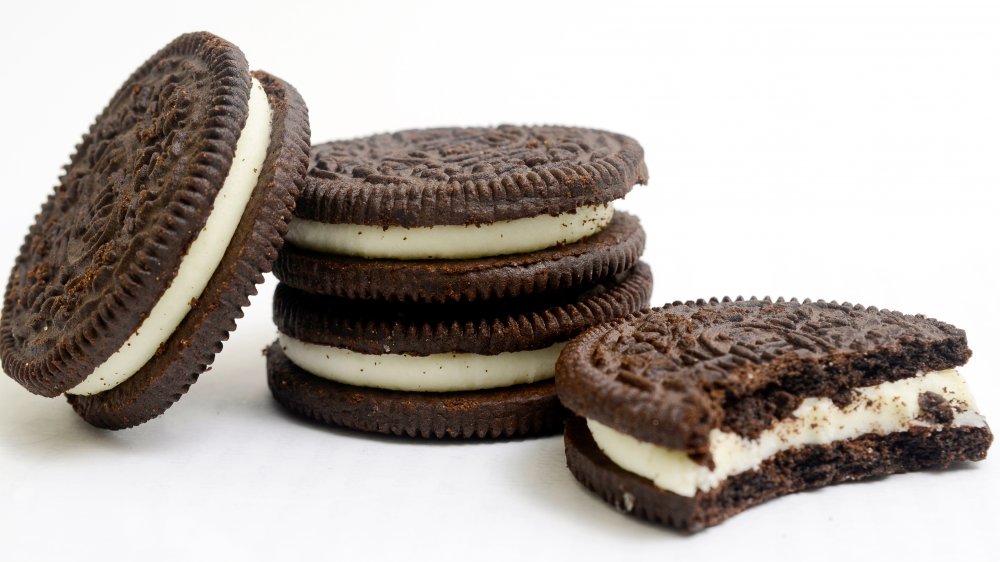The Untold Truth Of Hydrox
When you see the name Hydrox, do you imagine a Clorox knockoff? Do you find yourself fighting the spontaneous urge to make your whites whiter? If so, now you know how the Hydrox cookie crumbled. Its story is downright Shakespearean in that it's a tragedy which answers the question, "What's in a name?" Hydrox cookies by any other name would be just as sweet. But just like Juliet, they rose like the sun and were beset by a thorny obstacle revolving around their name.
Created in 1908 (via Atlas Obscura), Hydrox cookies were the brainchild of the Sunshine Biscuit company owned by Jacob Loose. These were the original cream-filled chocolate sandwich biscuits, arriving on the scene four years before Oreos. Yet Sunshine Biscuit's bright idea would be eclipsed by Nabisco's copycat cookies. The company had wrongly gambled calling their product Hydrox would make customers think of hydrogen and oxygen (the chemical components of water), simplicity, and purity. Instead, customers simply thought of sterility, associating Hydrox with hydrogen peroxide.
A ray of hope for Hydrox
Making a cookie sound like an antiseptic obviously put Sunshine Biscuit at a severe disadvantage. By the time Keebler took the reins in the 1990s, the brand had fallen so far behind that consumers assumed that the Hydrox originals were wannabe Oreos. And based on their sales, Hydrox probably did wanna be Oreo. In 1998, Oreos netted $374 million, compared to a meager $16 million for Hydrox.
Keebler tried to make the cookies sound more palatable by changing the name to Droxies. But after Kellog bought Keebler it shelved the cookies, discontinuing sales entirely in 2003. Save for a short-lived return in 2008, the cookies seemed kaput. However, Leaf Brands owner Ellia Kassoff wasn't ready to say goodbye forever. NPR explains that Kassof makes a living "bringing brands back from the dead." He had previously brought his favorite childhood lollipop back to life and had fond memories of Hydrox.
Fortunately for Kassof, when a trademark falls into disuse, it becomes fair game. He contacted Kellog to inquire about their plans for Hydrox. The company replied that it had "no plans to reintroduce it." Leaf Brands now had a green light, and in 2015 it bought Hydrox.
That's the way the cookies rumble
Hydrox rose like a phoenix from the ashes, but according to Leaf Brands, Oreo's owner, Mondelez, tried to clip its wings. As Gizmodo details, in 2018 Leaf Brands lodged a complaint to the Federal Trade Commission alleging that Mondelez was hiding Hydrox in stores. Leaf Brand bolstered its claims by posting photos of Hydrox cookies being relocated to less visible shelves and placed behind other products.
Amid the controversy, competing narratives emerged online. Today quotes a self-described Nabisco employee who unequivocally denied being instructed to move or hide Hydrox cookies. The user added, This is a retail store issue and not a Mondolez [sic] issue." But a different user identifying themselves as a "Retail Reset Merchandiser for SAS Retail Services" claimed to have directly witnessed "Mondelez Merchandisers and the company do some shady things."
A spokesperson for Mondelez framed the issue differently, insisting, "Much of our shelf placement is due to the fact that Oreo is the #1 cookie in the U.S., and retailers typically align premium placement to the fastest selling products, based on consumer demand." Whether or not they did anything shady, the company sure knows how to throw shade.


